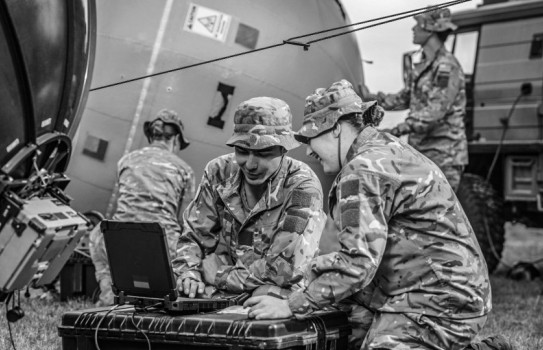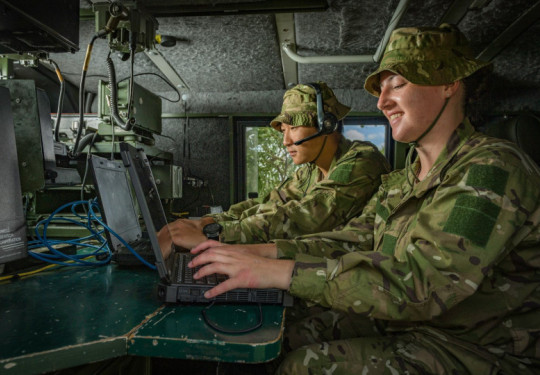New digital warfare trade for NZ Army
The NZ Army is looking for complex problem-solvers in the field of digital warfare.
27 February, 2024
The NZ Army is introducing the role of Information and Data Management Specialist (IMSPEC) to the Royal New Zealand Corps of Signals, recognising that effective use of data and information in digital age warfighting enables better military operations.
Project Sponsor Lieutenant Colonel Jay McLeary says digital age warfighting necessitates new skills within the operational force to ensure the Army maintains a competitive edge.
As well as military operations, IMSPECs can also streamline information exchange in inter-agency efforts such as humanitarian and disaster relief operations.
Project Lead, Major Peter Amyes, says through the delivery of new, specialist skills directly supporting commanders and staff, the IMSPEC will tackle challenges in maintaining control in increasingly complex information and data-rich environments.
“As a small Army, perhaps our greatest strength lies in our agility, where speed of decision making in the battlespace will enable us to act faster than our adversaries by accelerating our analysis, decision making and targeting processes. The IMSPEC positions us well to become what we call an Information Advantaged Force, using new data-centric capabilities such as Artificial Intelligence (AI) and Machine Learning (ML).
Managing, protecting and exploiting data and information has proven critical in modern conflicts, says LTCOL McLeary, providing a decisive edge for military commanders, analysts and decision makers. “Contemporary operating environments are seeing increasing amounts of disinformation and misinformation. Examples include GPS positioning and timing data being corrupted through deliberate manipulation, creating confusion or lack of trust in the accuracy of essential data.”

Publicly available documents and imagery could be deliberately manipulated to deceive militaries.
IMSPECs need to ensure that information and data being input is accessible, trusted and well-governed. They are likely to work with high levels of autonomy, using data analytic tools and artificial intelligence to solve problems.
“The IMSPEC’s role in aiding the validation of a data source is vital to intelligence and ensuring trust and confidence in data in support in decision making and executing operations."
“Accordingly, we expect to see the trade working closely with our operators across our intelligence, and surveillance and reconnaissance functions.”
IMSPECs will undertake tertiary training at Diploma and Bachelor degree-level in Information and Data Management.
“The trade is likely to evolve rapidly as the potential and use of artificial intelligence and machine learning in support of military operations is further explored.”
